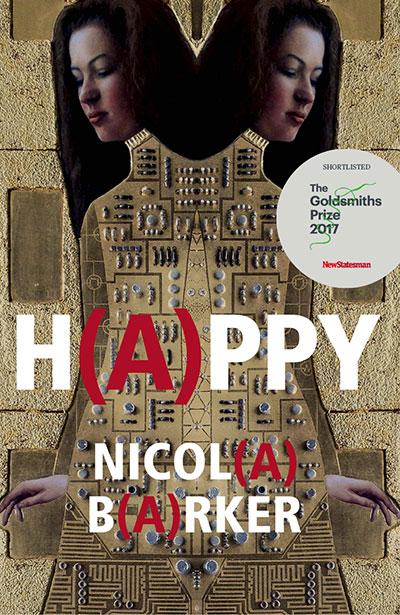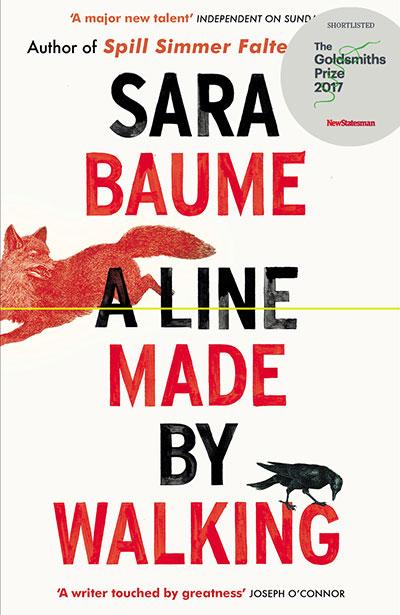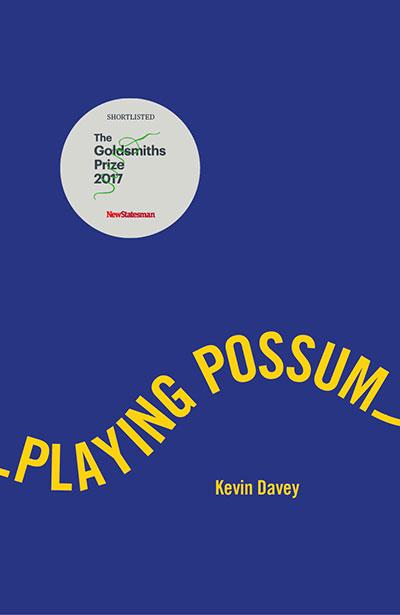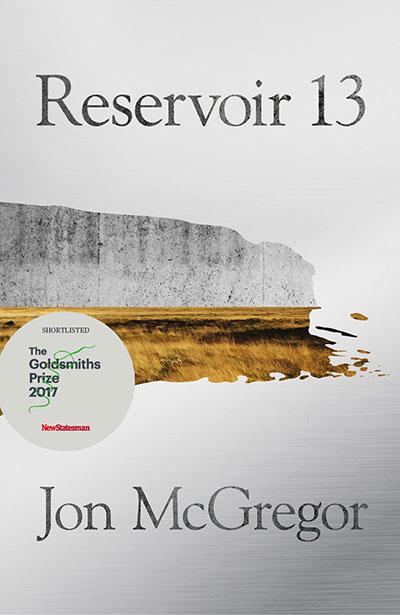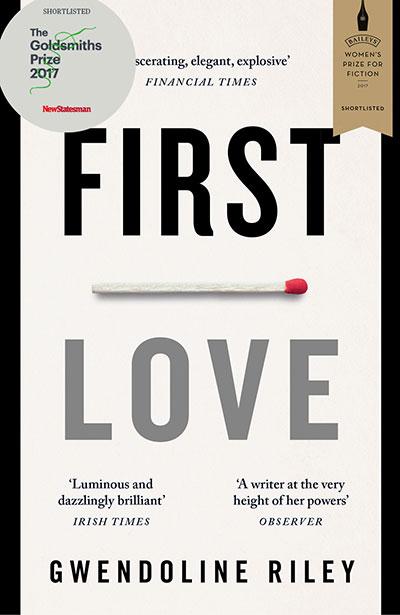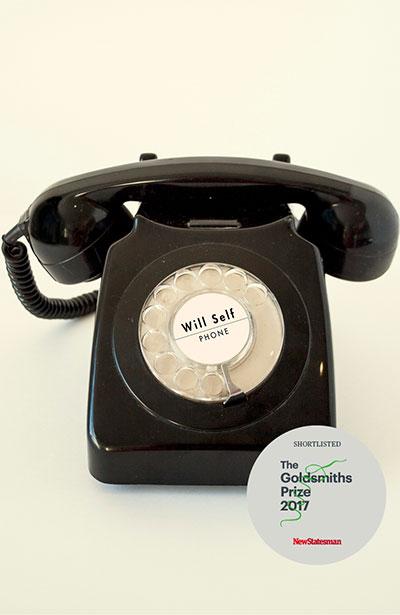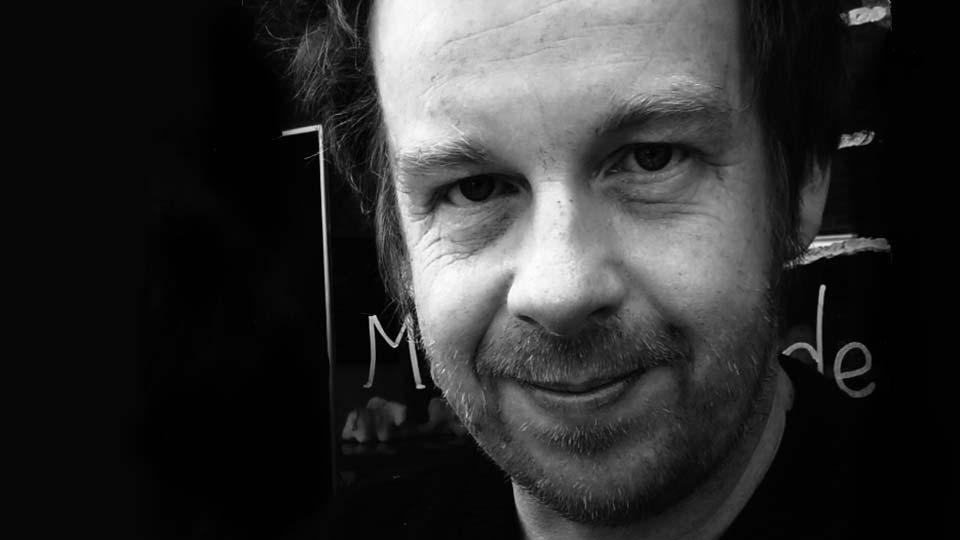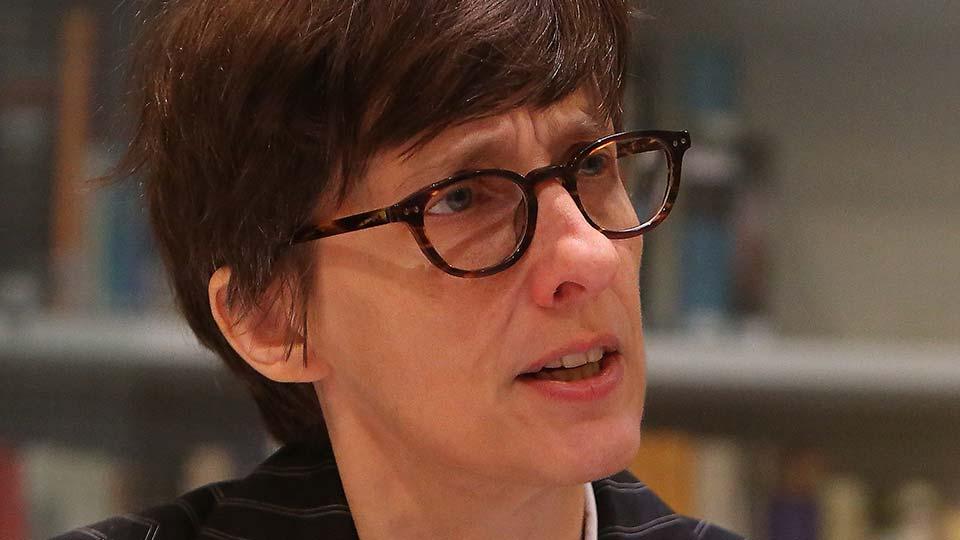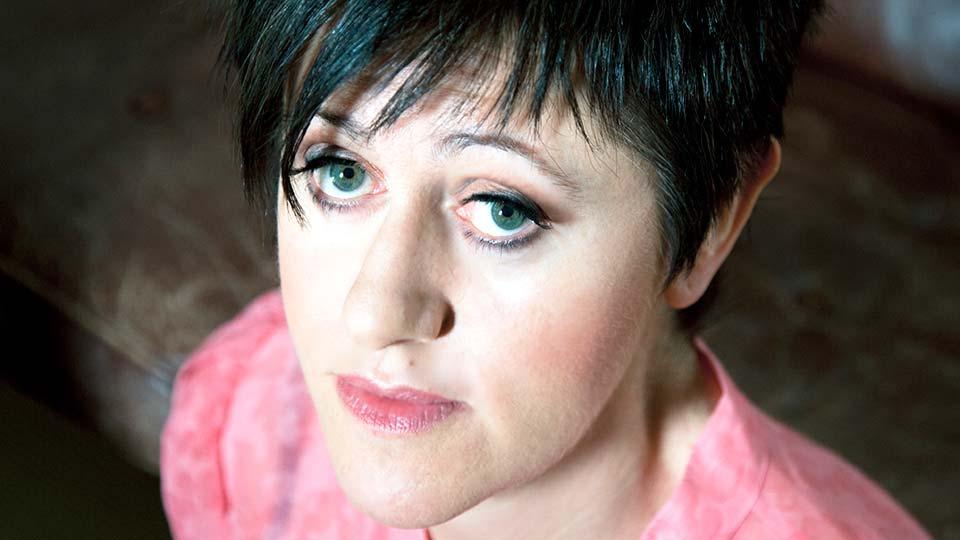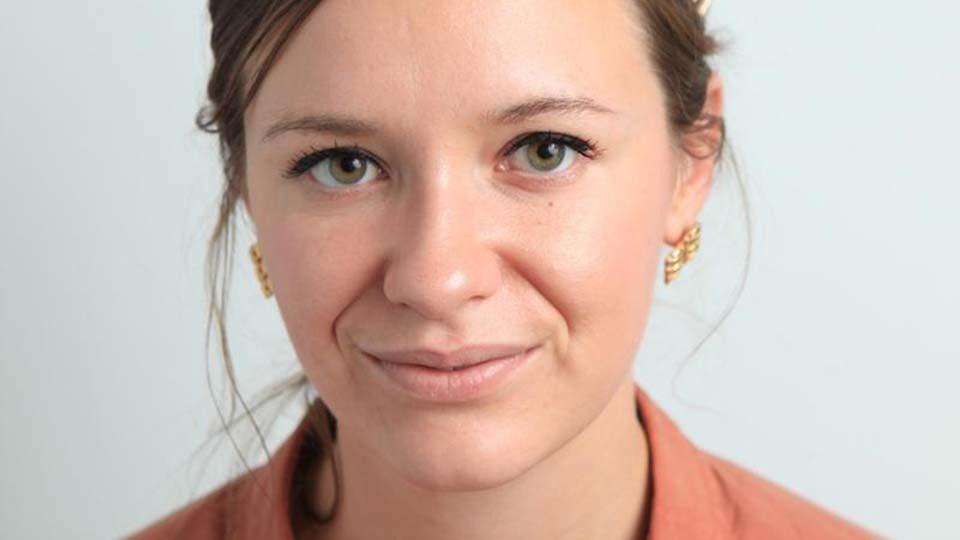The Goldsmiths Prize 2017
Nicola Barker's H(A)PPY is winner of the 2017 Goldsmiths Prize.
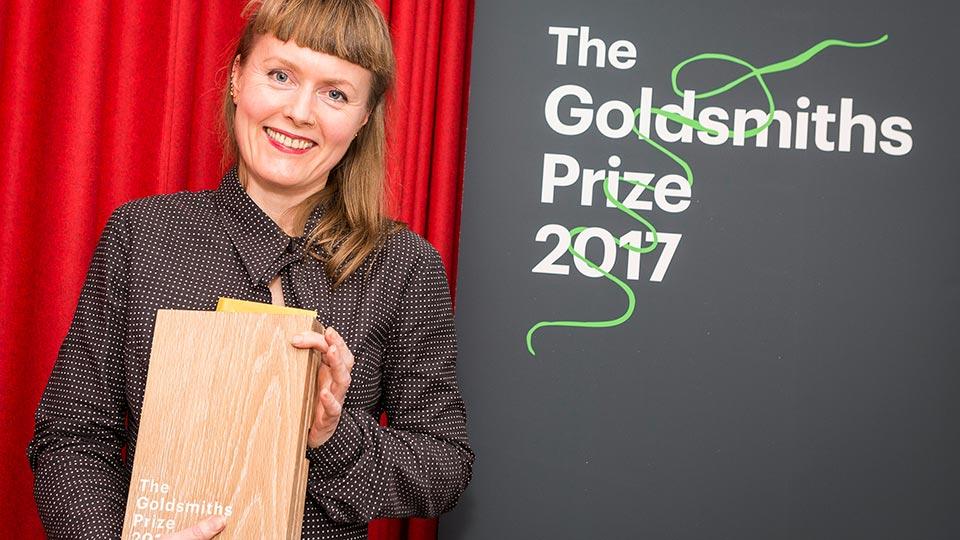
“Nicola Barker’s H(A)PPY is a structural marvel to hold in the mind and in the hands. Line by line, colour by colour, this dystopic utopia is an ingenious closed loop of mass surveillance, technology, and personality-modifying psychopharmaceuticals. H(A)PPY is a fabulous demonstration of what the Goldsmiths Prize champions: innovation of form that only ever enriches the story. In Barker’s 3D-sculpture of a novel, H(A)PPY makes the case for the novel as a physical form and an object of art.” Naomi Wood, Chair of Judges.
Read the news story
Chair of Judges' Speech
Nicola Barker on winning
Nicola Barker on winning
About the Shortlist
"Our six shortlisted books offer resistance to the received idea of how a novel should be written. Variously, they break the rules on continuity, time, character arcs, perspective, voice, typographical conventions and structure. As such, there is a wildness to all of our chosen books that provokes in the reader a joyful inquiry about just what a novel might be there to do." (Dr Naomi Wood, Chair of Judges)
The Goldsmiths Prize 2017: The judges on the shortlist
The judges on the shortlist
Kevin Barry on H(A)PPY
Nicola Barker’s H(A)PPY is a work of vaulting ambition. It is deathly serious but played out with the lightest of touches. She takes the vapid discourse of social media blather, with all its ‘likes’ and ‘favourites’, and extrapolates madly to make a language for an utterly believable future world, a world enslaved by the blandness of its technology. Line by line, the novel carefully builds its music and teases out its crazed riffs. It’s very funny but there are pockets of great eeriness, and of savagery even. It’s a novel-as-object, too, with a typography employed as visual code, but its design always has a narrative purpose. Only a writer of uncanny ability could bring this novel to such memorable, pulsing life. It’s very moving.
Tracey Thorn on A Line Made by Walking
In Sara Baume’s A Line Made by Walking, a young artist struggling with depression leaves the city and moves into a rural bungalow, the empty home of her dead grandmother, where, immersed in nature, she takes photographs of the dead creatures she finds in the surrounding fields. These very photos then appear throughout the novel, punctuating the text, in a way that serves to blur the distinction between fiction and non-fiction. Frankie, the narrator, experiences and records the natural world in unstinting detail, turning aside from it repeatedly to make equally detailed notes on the artworks which she has studied and which inspire her. Testing herself. Stuck in a rut but looking for a way out. There is an obsessive quality to all this, in a novel which picks apart strands of loneliness, art, misery and family, trying to work out where we fit in the world, and what sadness means, and what on earth might help.
A. L. Kennedy on Playing Possum
Playing Possum is a vastly energetic and confident book, a narrative that races along, packed with references and cross references mingling literature, film, time travel and visual art. 90 years after the first publication of The Waste Land - and perhaps far too late – a modern day protagonist seeks proof of a murder and flight. A fictional investigator pursues a fictionalised – and murderous – T.S. Eliot from London towards a perhaps fictitious night spent at a hotel in Whitstable in 1922. The aftermath of his deed may have been immortalised in a suitably shocking painting by possible accomplice Otto Dix. Davey’s plot begins to tangle and gambol from the outset. The text – filled with dialogue, asides and allusions – is rich enough to repay rereading. Its time jumps and linguistic experimentation, its mosaic plot and dark humour is a joyful exploration of the novel’s boundaries as a form.
A. L. Kennedy on Reservoir 13
Jon McGregor gives us a novel of quiet but profound resonance. The fulcrum of a young girl’s tragic disappearance is used to turn a small Peak District village through years of change, loss and the sheer passage of time. Lovers age, relationships crumble and begin, children grow, the old turn frail, chances are taken, experiments fail and heartbreak still rages and echoes long after headlines have perished. Time itself and its merciless progress are allowed to track across the book’s generous timescale and the title rings with ever-louder significance. The frail but generous life of the surrounding countryside is accurately and lyrically noted, a balancing source of renewal and tenderness – equally under pressure. This is a book which isn’t afraid of taking on life’s complexity or the communal life of people battling austerity and the wear and tear of simply existing. The passions and dramas of small people – often invisible in our culture – are allowed to shine in dignity.
Kevin Barry on First Love
The measure of invention in Gwendoline Riley’s First Love is in the measure of its affront to the world. The novel is a forensic dissection of a notably demented relationship, displaying all of its barbs and poison darts, but showing its moments of odd tenderness, too, and its stumbles in the darkness of love. Riley’s sentences have such punch and snap to them, and they are perfectly weighted to their scathing task. She teases out the night-black, tormented comedy of her scenes to hysterical effect – this is an achingly funny book. Also, it is completely unrelenting, and focused, and it gets its hooks in the reader at once. It leaves scars.
Naomi Wood on Phone
Narrated via a sweeping 600-page paragraph, Will Self’s Phone is an extraordinary novel. Voiced by four different characters (and their various inner ghouls and outer appendages) Self presents the minds of its main characters marked by trauma, inexplicable memory, and sometimes joy. Very soon, the reader is seduced by each character’s ‘mind-language’ which, forcefully, and without signalling, then breaks into the next. In the novel’s web of minds and memories, the reader is kept close by Self’s artful turn of phrase and linguistic acrobatics. A fascinating next-stage in Self’s modernist trilogy.
